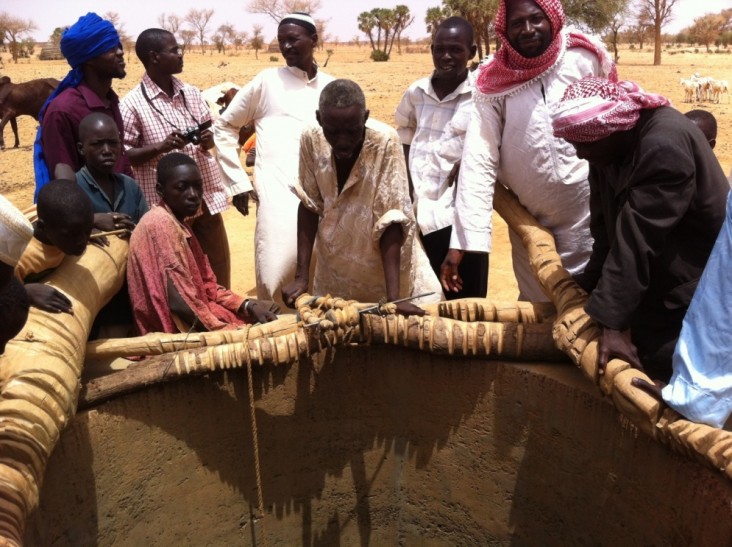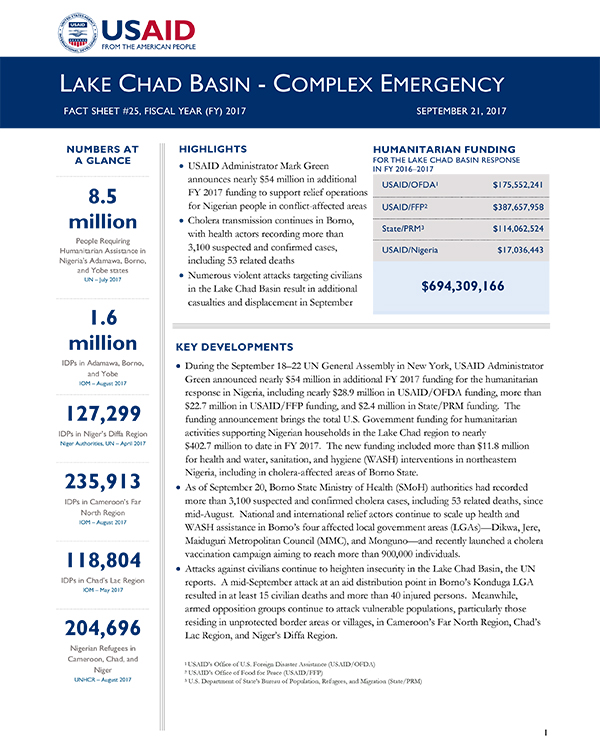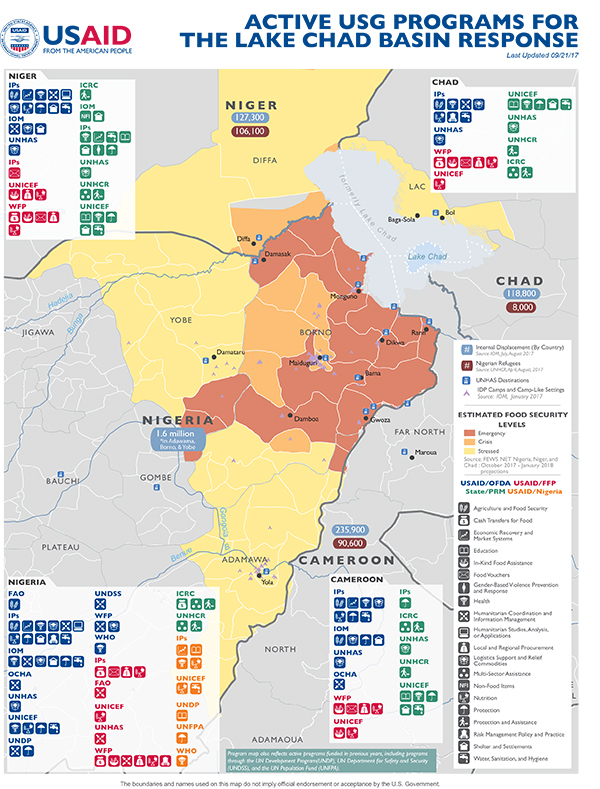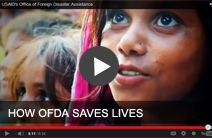- What We Do
- Agriculture and Food Security
- Democracy, Human Rights and Governance
- Economic Growth and Trade
- Education
- Ending Extreme Poverty
- Environment and Global Climate Change
- Gender Equality and Women's Empowerment
- Global Health
- Water and Sanitation
- Working in Crises and Conflict
- Disaster Assistance
- Political Transition Initiatives
- Conflict Mitigation and Prevention
- Countering Violent Extremism
- Disaster Risk Reduction
- Peacebuilding and Reconciliation
- Providing Safe & Secure Environments for Development
- Recovering From Crisis
- Resilience
- Tech Challenge for Atrocity Prevention
- World Humanitarian Day
- U.S. Global Development Lab

Key Developments
USAID's Office of U.S. Foreign Disaster Assistance (USAID/OFDA) is responding to heavy flooding in Niger, as well as the complex emergency in the Lake Chad Basin region, which includes Nigeria, Cameroon, Chad, and Niger.
Attacks against civilians continue to heighten insecurity in the Lake Chad Basin, the UN reports. Armed opposition groups continue to attack vulnerable populations, particularly those residing in unprotected border areas or villages, in Cameroon’s Far North Region, Chad’s Lac Region, and Niger’s Diffa Region.
As of mid-September, heavy rains and flooding during Niger’s June-to-September rainy season had resulted in at least 56 deaths, affected approximately 195,000 people, and destroyed more than 11,300 houses and 31,100 acres of land in all eight regions of Niger, according to Government of Niger authorities. In addition, the seasonal flooding resulted in more than 16,000 livestock lost between June and September 23. Flooding has affected more than 9,300 people— nearly 5 percent of the country’s total affected population—in Niger’s Diffa and Zinder regions, which border northeastern Nigeria, local officials report.
USAID/OFDA is responding to the complex emergency in the Lake Chad Basin region. Please visit our web page for additional information.
Background
The extensive scale of the flooding, as well as related humanitarian needs, exceeded the Government of Niger's capacity to respond and prompted authorities to request international assistance. On October 4, 2017, U.S. Ambassador to Niger Eunice S. Reddick declared a disaster due to the effects of the floods. In response, USAID/OFDA provided $50,000 to support the distribution of emergency relief supplies, including shelter materials, to affected people in Dosso and Niamey regions.
Boko Haram began directly attacking populations in Niger in February 2015; the conflict has continued throughout FY 2017. Insecurity contributed to population displacement, disruptions to basic services, and deteriorating food security, nutrition, and water, sanitation, and hygiene conditions among vulnerable populations. The UN reported that Diffa hosts more than 106,000 internally displaced persons. Insecurity in Diffa continues to disrupt markets and livelihood activities—including fishing and sale of crops and livestock—among vulnerable populations, with Crisis levels of acute food insecurity expected through at least January 2018, according to USAID-funded Famine Early Warning Systems Network (FEWS NET). The UN estimated that 340,000 people in Boko Haram-affected areas of Niger required humanitarian assistance.










Comment
Make a general inquiry or suggest an improvement.